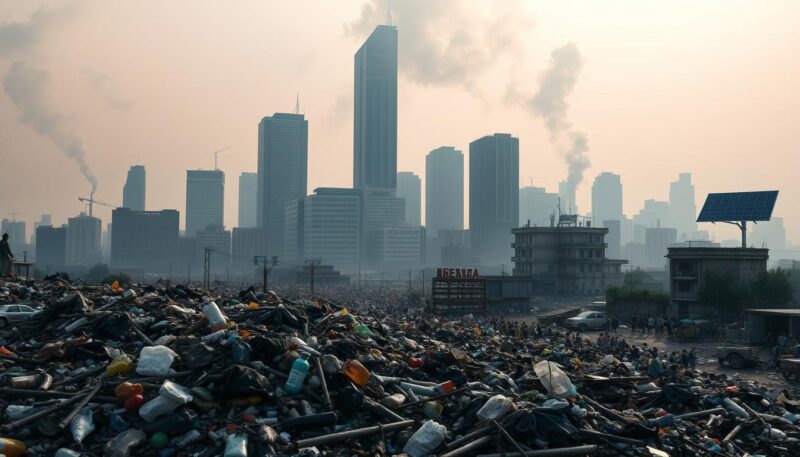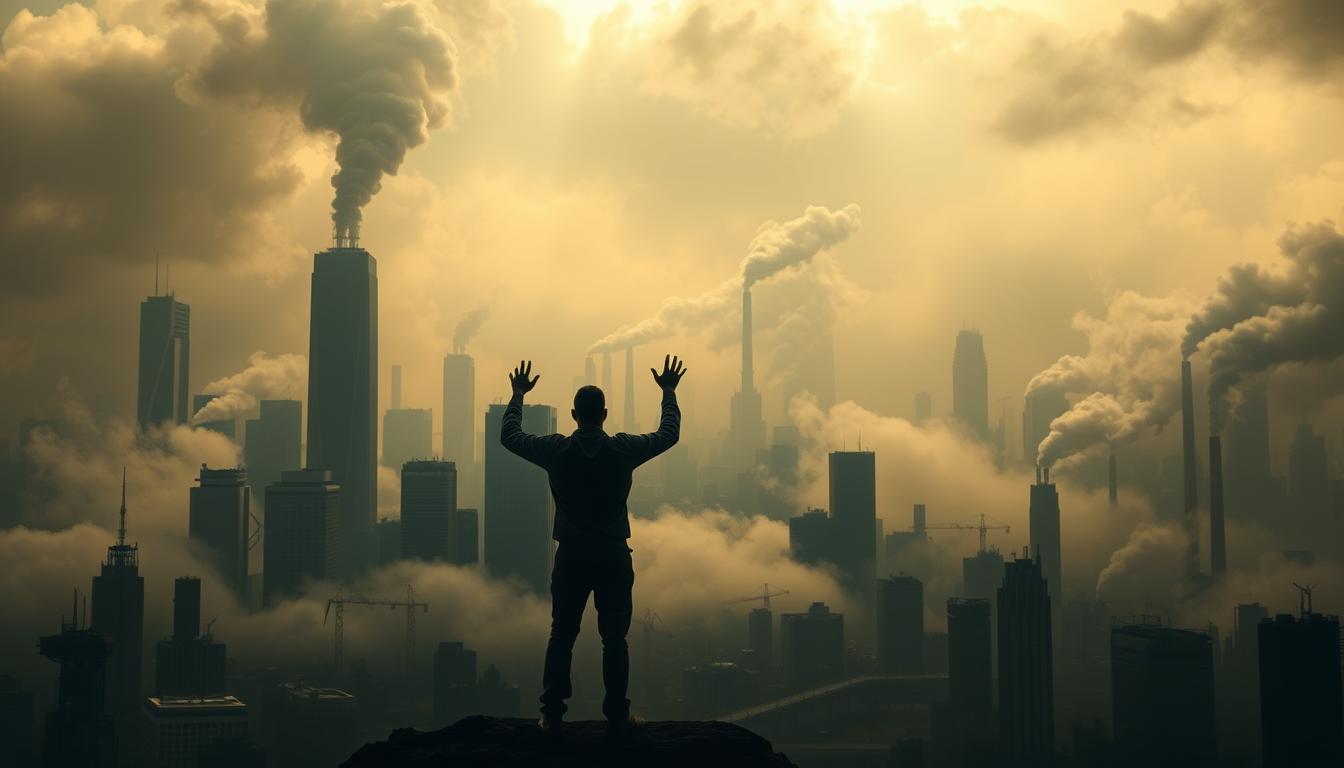In an age marked by rapid transformation and interconnectedness, identifying the most significant challenge that society faces today has never been more essential. With so many pressing issues vying for attention, it’s vital to delve into the biggest challenges today that threaten our collective future. From the dramatic rise of economic inequality to the existential threat posed by climate change, the challenges of 2025 are daunting. Understanding these global issues and their implications on daily life can shape how we engage with our communities and influence long-term solutions.
As you consider the obstacles that are redefining the landscape of society, personal stories and expert insights become invaluable. Imagine the impact of a student who, with a mere 3.91% chance of gaining admission into a prestigious university like Stanford, must navigate increasing costs of attendance averaging nearly $92,892 while feeling the burden of overcoming systemic inequalities. It’s not merely an isolated concern; it’s a representation of the broader societal challenges faced by many. The insights we gather from experts and analysts can guide our paths toward a more equitable and sustainable future.
Understanding the Modern Challenges
Today’s world is increasingly complex, filled with an array of modern society problems that require urgent attention. This landscape continues to evolve, shaped by various factors that impact everyday life. Through a social crisis analysis, one can gain valuable insight into the core issues that are affecting communities globally. Understanding these challenges is critical to anticipating future societal risks.
Defining the Current Landscape of Society
Modern society experiences profound shifts driven by economic, political, and cultural changes. The widening income gap starkly illustrates the disparities between the wealthy and the impoverished, particularly in developing nations. Poverty in the United States is less severe compared to global conditions, yet it remains a pressing concern. Ignorance and apathy weigh down progress, serving as barriers in the fight to address political and social issues effectively.
Key Issues Impacting Today’s World
Several key issues disrupt the fabric of society today. The rising cost of living forces individuals to reevaluate their priorities, influencing mental wellbeing and overall quality of life. Sleep deprivation emerges as a concerning problem, with many reporting inadequate rest due to societal demands. Education inequality highlights the risk of losing talented individuals who could contribute significantly to society, while misconceptions about human nature hinder progress.
- Overpopulation poses significant challenges, with population growth leveling off in many regions.
- Climate change influences agricultural practices by creating a “perfect storm” of energy scarcity and environmental degradation.
- The aging population reflects a humanitarian shift requiring adaptations in health care and social services.
- Gender equality remains crucial, as women and girls represent half of the world’s potential and play a vital role in sustainable development.
As societal dynamics evolve, these issues become increasingly interconnected, requiring thoughtful consideration to navigate the challenges ahead. Addressing these modern society problems with foresight and collaboration will be essential in minimizing future societal risks.
What Is the Most Significant Challenge That Society Faces Today?
Addressing the complex issues of economic inequality and climate change impact reveals two of the biggest challenges today. Both areas significantly affect various aspects of society, including health, education, and overall quality of life.
The Rise of Economic Inequality
The gap between the ultra-wealthy and the rest continues to expand. A 2021 report highlights that the richest 1% of individuals possess more wealth than 6.9 billion people combined. This stark disparity leads to inequitable access to essential resources such as education and healthcare. Currently, approximately 262 million children and youth worldwide are out of school, with half situated in conflict zones. Disparities exist within the United States as well, where around 30 million people lacked health insurance in 2021. The struggle for equitable distribution of resources emphasizes a need for systemic change.
Climate Change: A Global Issue
Climate change poses a critical threat to global stability, projected to displace over 140 million people by 2050 due to environmental factors. Natural disasters, exacerbated by climate change, threaten food security and create international tensions. The ongoing impact of climate change intertwines with social and economic factors, complicating efforts to achieve a sustainable future. Understanding the urgency of this issue underscores the need for immediate and sustained action across communities and nations.

Expert Opinions on Society’s Challenges
Understanding the complexity of today’s societal issues necessitates insights from experts in sociology and economics. Their analyses shed light on how economic inequality interconnects with climate change and its broader implications for global sustainability. This section explores perspectives on the role of technology and ethics in addressing these critical challenges.
Insights from Sociologists and Economists
Sociologists emphasize that economic inequality remains a pressing issue for society. They highlight expert opinions on society that point to the stark contrast in wealth distribution, where 1% of the world’s wealthiest individuals control two-thirds of all new wealth generated since the beginning of the decade. This disparity fuels societal discontent and contributes to violence, with significant implications for mental health. Around 1 billion people worldwide suffer from mental disorders, pointing to a growing crisis exacerbated by financial stress.
Economists echo these sentiments, noting the overwhelming impact of inflation on workers. Approximately 1.7 billion individuals contend with wage stagnation while inflation rises, accentuating the need for effective policy interventions. As experts analyze these dynamics, they recognize that sustainable solutions must address both immediate economic needs and long-term strategies for global sustainability.
The Role of Technology and Ethics in Society
Technology serves as a double-edged sword in contemporary society. While it holds the potential to tackle critical challenges, it introduces ethical dilemmas that cannot be ignored. Expert opinions on society often highlight the role of technology in fostering sustainability. Innovations in renewable energy, efficient agricultural practices, and smart resource management offer pathways to mitigate environmental degradation.
Nonetheless, ethical considerations abound. The rapid advancement of technology poses threats to jobs and economic balance, with the risk of exacerbating inequality. The juxtaposition of the rich getting richer—observed in billionaires seeing their wealth grow by $2.7 billion per day—against a backdrop where low-income populations face severe challenges underlines the urgency of responsible technological integration.

A critical debate centers on how these technological innovations can be employed ethically, ensuring they contribute to global sustainability without disenfranchising vulnerable populations. Balancing this complexity remains a challenge as society strives for equitable solutions that benefit all.
| Challenge | Expert Perspective | Technology’s Role |
|---|---|---|
| Economic Inequality | 1% of the world’s wealthiest hold two-thirds of new wealth | Innovative economic solutions needed to bridge the gap |
| Mental Health Crisis | 1 billion suffering from mental disorders globally | Technology can enhance mental health services |
| Climate Change | Effects of climate change recognized as urgent | Renewable energy and smart resource management |
| Global Sustainability | Critical need for sustainable practices | Responsible tech usage essential for success |
Conclusion
As we’ve explored throughout this article, society faces significant challenges today that require immediate attention and collective action. From the ever-widening gap of economic inequality to the daunting threat posed by climate change, the stakes have never been higher. Understanding these complex issues is paramount, as they dictate the very fabric of our future and the risks that lie ahead.
The insights shared from various experts underscore that combating these challenges is not merely the responsibility of policymakers or activists. You, as an informed citizen, play a crucial role in fostering dialogue and advocating for sustainable solutions. Engaging with your community, raising awareness, and promoting actionable discussions can instigate meaningful change.
Ultimately, reflecting on your part in this grand narrative is essential. The path to overcoming future societal risks hinges on collaborative efforts and a shared commitment to improvement. Let us strive to create a more equitable and sustainable world, knowing that each step taken today paves the way for a brighter tomorrow.

